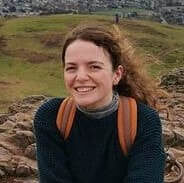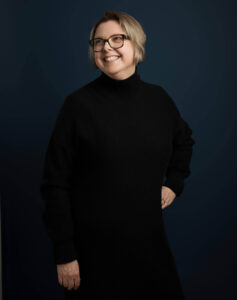In the lead up to starting my PhD, I was given ample warning about how undertaking a doctorate can be one of the most isolating experiences to endure. However, having already lived through multiple COVID lockdowns by this point I thought I was well acquainted with isolation. I acknowledged these cautions but did not pay them too much heed as I thought I was more than ready to undertake this new chapter in my academic career.
I was not.
Within the first two weeks, my anxiety was at an all-time high, my imposter syndrome was crippling me to the point that I was scared to even approach my work. My key texts began making no sense, and the critical skills that seemed to come so naturally to me during my undergraduate and master’s had all but gone. Furthermore, as I am doing my PhD part-time and self-funding, the separation I felt from the general ongoings of the department and my peers due to work commitments felt like I was occupying my own lonely island.
However, when a dear friend and colleague of mine reached out to me and posited the idea of beginning a decolonisation collective I was instantly on board. The university as an institution is founded on the premise of white supremacy and epistemological violence, it very much operates in the shadow of colonialism. Pedagogy is rooted in the Westernised canon, while other modes of knowledge production tend to be either added in a tokenistic manner or simply ignored. Founding a group that wishes to undo these unjust structures while thinking through the implications of our academic practices sounded like an amazing way to share ideas while also finding a sense of community among other PhD researchers.
This group was carved out in our design. The first-ever meeting was dedicated to developing the structure and principles to which The Collective would adhere. There is no ‘leader’ or head of the group, and we take turns chairing sessions. Likewise, the principles are simple. We stand with each other in solidarity, we share resources, we hold each other accountable, and we strive to develop our decolonial practices within our specific fields of research. The final principle has engendered conversations ranging from mobility in environmental research, to the issues surrounding researchers functioning as ‘extractors’ from indigenous communities.
These discussions are facilitated via five minutes of protected time that each member is allocated. During that time, you can talk about ANYTHING. Sometimes ideas are distributed, other times it can be used just to offload the intense emotional stress that doing independent research can induce. This is a space I hold dearly, although there is a productive element in the sharing of ideas, resources, and samples of writing, what I consider more important is that the relationship that has evolved is one in which we deeply care for each other’s emotional and mental wellbeing.
Off the back of being approached to write this article, as a group, we ended up in a discussion about the importance of friendship in academia. This is what the remainder of this article will reflect on, as it is significant. As a PhD researcher, you need to surround yourself not only with those who want to help you succeed academically but to support you through the turbulent and chaotic process of the doctorate. This is the key difference between collaboration and friendship.
One of the main reflections we ended up getting into a deeper discussion about is the radical potential of friendship. In our neoliberal world order, we are socialised from a young age to see everyone as competition in the marketplace. While you may appear to celebrate the success of others, there can remain some bitterness because when compared to others you perceive yourself as lesser. I will admit I was guilty of this at one point in my life. After graduating from my MA, COVID-19 meant that my career did not take off quite as I imagined, and I remained waiting tables for two years. I witnessed my friends get jobs with high profile companies and the perpetual sense of inadequacy followed me around.
The Collective has changed that for me. I always had the impression that everyone was able to keep it together so much better than me. I believed that I was the problem. I needed to simply do better. Any bad feeling that I felt had to be my fault. But creating the space to share our struggles of PhD life has made the whole process more bearable. I realised very early on that the thoughts and feelings I was convinced only applied to me were a lot more universal than I first believed. Having individuals I admire and regard so highly stating that they too had these moments of feeling like an imposter when around other academics I felt a whole burden lift itself off my shoulders.
When I think about the successes of all those involved in The Collective, my heart feels so full. From organising conferences, galleries, and activism to having blog posts published and abstracts accepted, I am so proud of every one of these individuals. Having the privilege to grow academically alongside these peers is one of the best things to have come out of doing a PhD. The friendship that has been fostered by The Collective has helped me through some of the roughest of times in recent months and I am forever thankful for the space they give me.
If I was to say some key lessons that have come out of being in The Collective, they would be…
1) When you are genuinely happy about the successes of others, life becomes a lot nicer. Friendship is radical and beautiful and therefore should be fostered in all environments.
2) Other PhD students are your teammates and not your competitors, if you are there for them when they need it, I can guarantee they will be there for you.
3) No, you are not alone, everyone suffers from imposter syndrome… it’s good to remind yourself of that from time to time.
4) If you receive criticism on your work, don’t take it personally, it all comes from a place of love.
5) It will be alright in the end, if it’s not alright it’s not the end.






